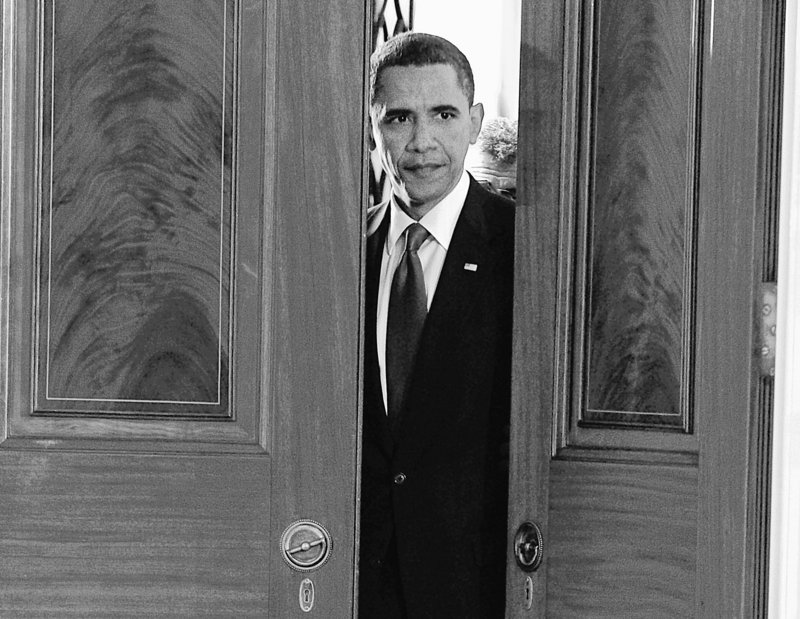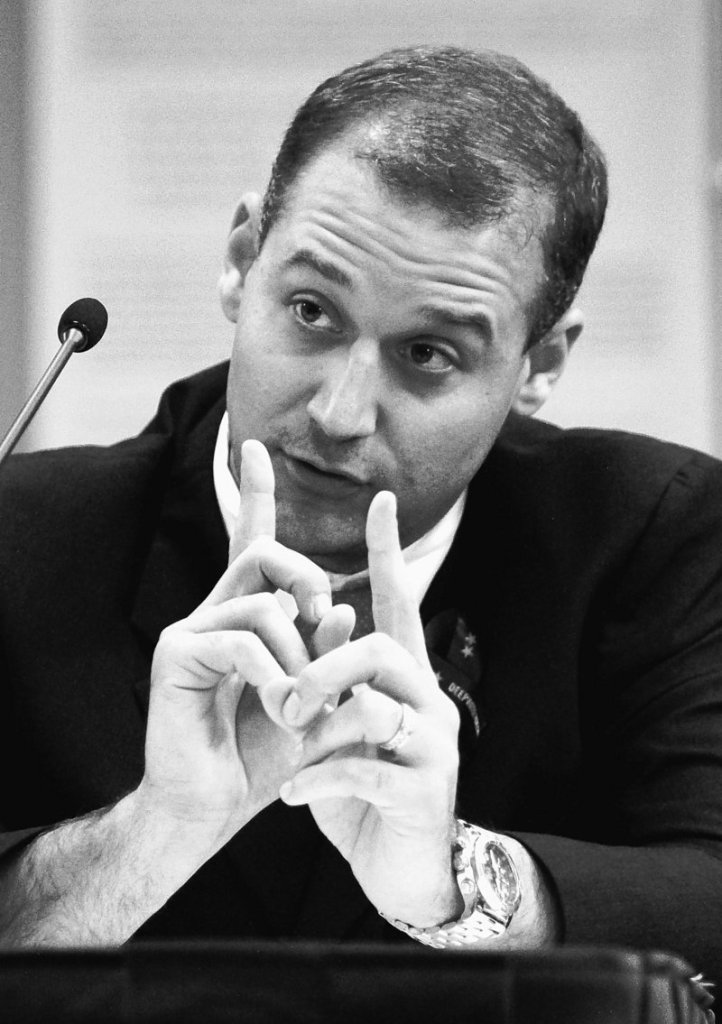WASHINGTON — Thrown on the defensive, President Obama acknowledged that his administration could have done better in dealing with the biggest oil spill in the nation’s history and misjudged the industry’s ability to cope with a worst-case scenario. Obama will make his second tour of the battered Gulf Coast today.
“I take responsibility. It is my job to make sure that everything is done to shut this down,” Obama declared in a lengthy news conference at the White House on Thursday. As he spoke, well owner BP struggled anew to plug the blown well that exploded five weeks ago, killing 11 workers and sending millions of gallons of polluting oil gushing out.
Obama’s words marked a clear shift of emphasis for an administration that previously had said it was generally “in charge” but there were limits to what it could do — and that oil giant BP was responsible for stopping the flow and cleaning up the disastrous damage.
“Those who think we were either slow on the response or lacked urgency, don’t know the facts,” said Obama at a White House news conference at which he also announced new restrictions on offshore drilling.
Separately, Elizabeth Birnbaum, the head of the Minerals Management Service that oversees offshore drilling, resigned under pressure.
Obama’s move to take responsibility and accept accountability was a gesture few politicians are eager to make. But with each passing day, frustration with Obama’s administration has grown, and his poll numbers on the matter are dropping. The news conference and his trip to the coast on Friday represent a more aggressive public effort by the president.
Asked about comparisons to the Bush administration’s much-criticized handling of the Hurricane Katrina aftermath, he said that was for others to judge but he insisted his administration has been active from the start.
“This has been our highest priority” since the rig exploded, he said, making the point repeatedly.
New estimates Thursday showed the spill has already surpassed the Exxon Valdez accident in Alaska as the nation’s worst.
The president announced new steps to restrict drilling, including continuing a moratorium on drilling permits for six months, suspending planned exploratory drilling off the coasts of Alaska and Virginia and ordering a halt to 33 exploratory deep-water rigs in the Gulf of Mexico.
Obama’s news conference was his third this year, but just his first scheduled question-and-answer session at the White House since a prime-time East Room session in July of last year.
Even Democrats described the president as defensive in his meeting with reporters.
“The president and White House are arguably facing their first crisis without a partisan foe, and that makes for difficult press conferences and unforgiving politics,” Democratic strategist Chris Kofinis said.
Obama spoke at times in personal terms. “My job right now is just to make sure everybody in the Gulf understands: This is what I wake up to in the morning, and this is what I go to bed at night thinking about. The spill.”
Obama marked out half a dozen areas where he and his administration could have done better.
They included: not moving sooner to finish reforming what he called “cozy and sometimes corrupt” relations between the oil industry and government regulators; not recognizing that those flaws continued before approving an expansion of offshore drilling, and not obtaining more quickly an accurate estimate on the amount of oil gushing from the leak.
He also said he regretted not pushing BP sooner to release underwater video footage of the leak and not realizing that oil companies did not have “their act together when it came to worst case scenarios.” Though he said the government was giving the orders in the aftermath, he acknowledged that BP hasn’t always done what officials have asked, for instance ignoring directions to fully explore less-toxic alternatives to the chemical dispersant being used now on the oil.
Said Obama: “If you’re living on the coasts and you see this sludge coming at you, you are going to be continually upset and from your perspective, the response is going to be continually inadequate until it actually stops. And that’s entirely appropriate and understandable.”
Send questions/comments to the editors.




Success. Please wait for the page to reload. If the page does not reload within 5 seconds, please refresh the page.
Enter your email and password to access comments.
Hi, to comment on stories you must . This profile is in addition to your subscription and website login.
Already have a commenting profile? .
Invalid username/password.
Please check your email to confirm and complete your registration.
Only subscribers are eligible to post comments. Please subscribe or login first for digital access. Here’s why.
Use the form below to reset your password. When you've submitted your account email, we will send an email with a reset code.